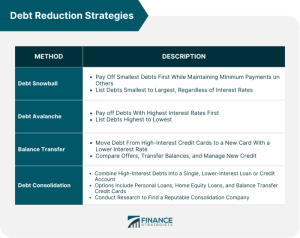
Exploring the world of managing charitable donations and philanthropy through the lens of financial advisors offers valuable insights and strategies for making a meaningful impact. Dive into this guide to discover practical tips and expert advice on optimizing your philanthropic endeavors.
Tips for Managing Charitable Donations and Philanthropy
Setting clear donation goals is crucial when engaging in philanthropic activities. It helps you stay focused, track progress, and ensure your contributions are making a meaningful impact. Whether you aim to support a specific cause, help a certain community, or achieve a certain outcome, having well-defined objectives will guide your giving strategy.
Examples of Tax-Efficient Ways to Donate to Charities
- Consider donating appreciated assets like stocks or real estate to take advantage of tax deductions and avoid capital gains taxes. This can maximize the value of your contribution to the charity.
- Utilize donor-advised funds, which allow you to make a charitable contribution and receive an immediate tax deduction, while granting you the flexibility to recommend grants to charities over time.
- Explore qualified charitable distributions from your IRA if you are over 70.5 years old, as this can fulfill your required minimum distribution while supporting charitable causes tax-efficiently.
Strategies for Researching and Selecting Reputable Charitable Organizations
Researching charitable organizations before donating is essential to ensure that your contributions are used effectively and ethically. Look for transparency in financial reporting, impact assessment, and governance practices. Consider utilizing resources like Charity Navigator, GuideStar, or the Better Business Bureau’s Wise Giving Alliance for evaluating nonprofits.
The Benefits of Creating a Budget Specifically for Philanthropic Activities
Creating a dedicated budget for philanthropy helps you plan your charitable giving in a sustainable and impactful way. It allows you to allocate funds strategically, monitor your donations, and adjust your giving based on your financial capacity. By setting aside a specific amount for philanthropy, you can ensure that your contributions align with your values and goals while maintaining financial stability.
Financial Advisor’s Role in Philanthropy

Financial advisors play a crucial role in helping clients align their philanthropic goals with their financial plans, ensuring that charitable giving is integrated effectively into their overall wealth management strategy. By providing expertise in financial planning and investment management, financial advisors can maximize the impact of charitable donations and help clients make informed decisions about their philanthropic endeavors.
It is essential to incorporate philanthropy into long-term financial planning to ensure that charitable giving is sustainable and aligned with the client’s values and financial objectives.
Maximizing Impact of Charitable Donations
- Financial advisors can help clients identify tax-efficient strategies for charitable giving, such as donor-advised funds or charitable trusts, to maximize the impact of their donations while minimizing the tax implications.
- By conducting thorough research and due diligence, financial advisors can assist clients in selecting reputable and effective charitable organizations that align with their values and philanthropic goals.
- Financial advisors can also help clients create a structured giving plan that Artikels their charitable objectives, budget, and timeline, ensuring that their donations are strategic and impactful.
Incorporating Philanthropy into Long-Term Financial Planning
- Financial advisors can work with clients to establish a philanthropic mission and vision statement that guides their charitable giving decisions and ensures alignment with their overall financial goals.
- By integrating charitable giving into retirement planning and estate planning, financial advisors can help clients create a legacy of philanthropy that reflects their values and leaves a lasting impact on their community and causes they care about.
- Regular reviews and updates of the philanthropic plan by financial advisors ensure that charitable giving remains a priority and evolves with changing financial circumstances or philanthropic interests.
Finance Insights Daily
When it comes to managing finances, staying informed and up-to-date is crucial for making sound financial decisions. This is where daily finance insights play a key role in providing individuals with timely information to navigate the ever-changing financial landscape.
Importance of Daily Finance Insights
Having access to daily finance insights allows individuals to stay informed about market trends, economic indicators, and financial news that can impact their investments and overall financial well-being. By staying abreast of the latest developments, individuals can make informed decisions and adjust their financial strategies accordingly.
- Real-time Market Updates: Daily finance insights provide real-time updates on stock prices, market trends, and economic data, allowing individuals to track their investments and make timely decisions.
- Financial News Analysis: By following daily finance insights, individuals can gain valuable insights from financial experts and analysts, helping them understand the implications of financial news and events on their portfolios.
- Personalized Recommendations: Some platforms offer personalized finance insights based on individual financial goals and risk tolerance, providing tailored advice to help individuals achieve their financial objectives.
By incorporating daily finance insights into their routine, individuals can proactively manage their finances and make informed decisions that align with their financial goals.
Role of Technology in Providing Real-Time Insights
Advancements in technology have revolutionized the way individuals access financial information, with real-time insights now readily available at their fingertips. Technology plays a crucial role in providing users with instant access to financial data and analysis, empowering them to make informed decisions on the go.
- Mobile Apps: Many financial institutions offer mobile apps that provide real-time updates on market trends, account balances, and investment performance, allowing users to stay informed wherever they are.
- Data Analytics Tools: Technology-driven data analytics tools help users track their spending, monitor investments, and analyze financial trends, enabling them to make data-driven decisions for their financial future.
- AI-driven Insights: Artificial intelligence tools can analyze vast amounts of financial data to provide users with personalized insights and recommendations, helping them optimize their financial strategies for better outcomes.
Smart Finance Word

In the context of personal finance, “Smart Finance Word” refers to the strategic and prudent management of one’s financial resources to achieve long-term financial well-being. It involves making informed decisions, setting realistic goals, and prioritizing financial stability and growth.
Examples of Applying Smart Finance Principles
- Creating a budget and tracking expenses to ensure spending is aligned with financial goals.
- Automating savings and investments to build a strong financial foundation for the future.
- Regularly reviewing and optimizing financial accounts to maximize returns and minimize fees.
- Comparing offers and negotiating for better terms on loans, insurance, and other financial products.
Impact of Adopting Smart Finance Habits
By incorporating smart finance habits into daily life, individuals can significantly improve their financial well-being in the long run. These habits can lead to:
- Increased savings and investments, resulting in financial security and wealth accumulation over time.
- Reduced debt and interest payments, freeing up resources for other financial goals and opportunities.
- Better financial decision-making skills and confidence in managing financial challenges and uncertainties.
- Overall improvement in financial health and resilience to economic downturns or unexpected expenses.
Digital Finance
The concept of digital finance has revolutionized the financial industry, transforming the way individuals and businesses manage their money. With the advancement of technology, digital finance encompasses a wide range of financial services and tools that are accessible online or through mobile applications.
Evolution of Digital Finance
- Digital payments: The shift towards cashless transactions has led to the widespread adoption of digital payment methods such as mobile wallets, contactless cards, and online banking.
- Robo-advisors: Automated investment platforms use algorithms to provide personalized investment advice and portfolio management, making investing more accessible and cost-effective.
- Blockchain technology: The decentralized and secure nature of blockchain has enabled the development of cryptocurrencies and smart contracts, offering new ways to transact and store value.
Benefits and Challenges of Digital Tools
- Benefits:
- Convenience: Digital tools allow for 24/7 access to financial information and services from anywhere in the world.
- Cost-effective: Online banking and investment platforms often have lower fees compared to traditional financial institutions.
- Efficiency: Automation of processes like bill payments and investment rebalancing saves time and reduces human error.
- Challenges:
- Cybersecurity threats: The risk of data breaches and identity theft is a concern when using digital tools for financial transactions.
- Digital literacy: Not everyone is comfortable or familiar with using digital tools, leading to a digital divide in accessing financial services.
- Regulatory compliance: The evolving regulatory landscape for digital finance can create uncertainty and compliance challenges for financial institutions.
Innovative Digital Finance Solutions
- Peer-to-peer lending platforms: These online platforms connect borrowers directly with investors, offering competitive loan rates and quick funding.
- Digital wallets: Mobile payment apps like PayPal, Venmo, and Apple Pay allow users to send and receive money securely using their smartphones.
- Crowdfunding platforms: Websites like Kickstarter and GoFundMe enable individuals and organizations to raise funds for projects or causes through online donations from a large pool of contributors.
Future Skills Program
Future skills programs play a crucial role in preparing individuals for the ever-evolving financial landscape. As technology advances and the global economy changes, it is essential for professionals in the finance industry to stay ahead by developing relevant skills.
Importance of Future Skills Programs
Participation in future skills programs helps individuals acquire the necessary knowledge and expertise to navigate the complexities of modern finance. By staying abreast of the latest trends and innovations, professionals can adapt to new challenges and seize opportunities for growth.
Key Skills for Success in the Future of Finance
- Proficiency in data analysis and interpretation
- Understanding of blockchain technology and cryptocurrencies
- Ability to leverage artificial intelligence and machine learning in financial decision-making
- Strong communication and collaboration skills for interdisciplinary teamwork
- Adaptability and willingness to embrace change in a fast-paced environment
Enhancing Career Prospects through Future Skills Programs
Engaging in future skills programs can open doors to new opportunities in the financial industry. For example, acquiring expertise in data analytics can lead to roles in financial modeling or risk management. Similarly, knowledge of blockchain technology can pave the way for positions in fintech companies or digital asset management.
Final Wrap-Up
As we wrap up our exploration of financial advisor tips for managing charitable donations and philanthropy, remember that thoughtful planning and strategic giving can amplify the positive change you wish to see in the world. Incorporating these strategies into your financial journey can lead to a fulfilling and impactful philanthropic experience.
FAQ Section
Why is setting clear donation goals important?
Setting clear donation goals helps you align your giving with your values, track your impact, and ensure your contributions make a meaningful difference.
How can financial advisors help maximize the impact of charitable donations?
Financial advisors can provide insights on tax-efficient giving strategies, help identify reputable organizations, and tailor donation plans to align with your financial goals.
What role does technology play in providing real-time finance insights?
Technology enables users to access up-to-date financial information, track spending patterns, and make informed decisions for better financial management.







